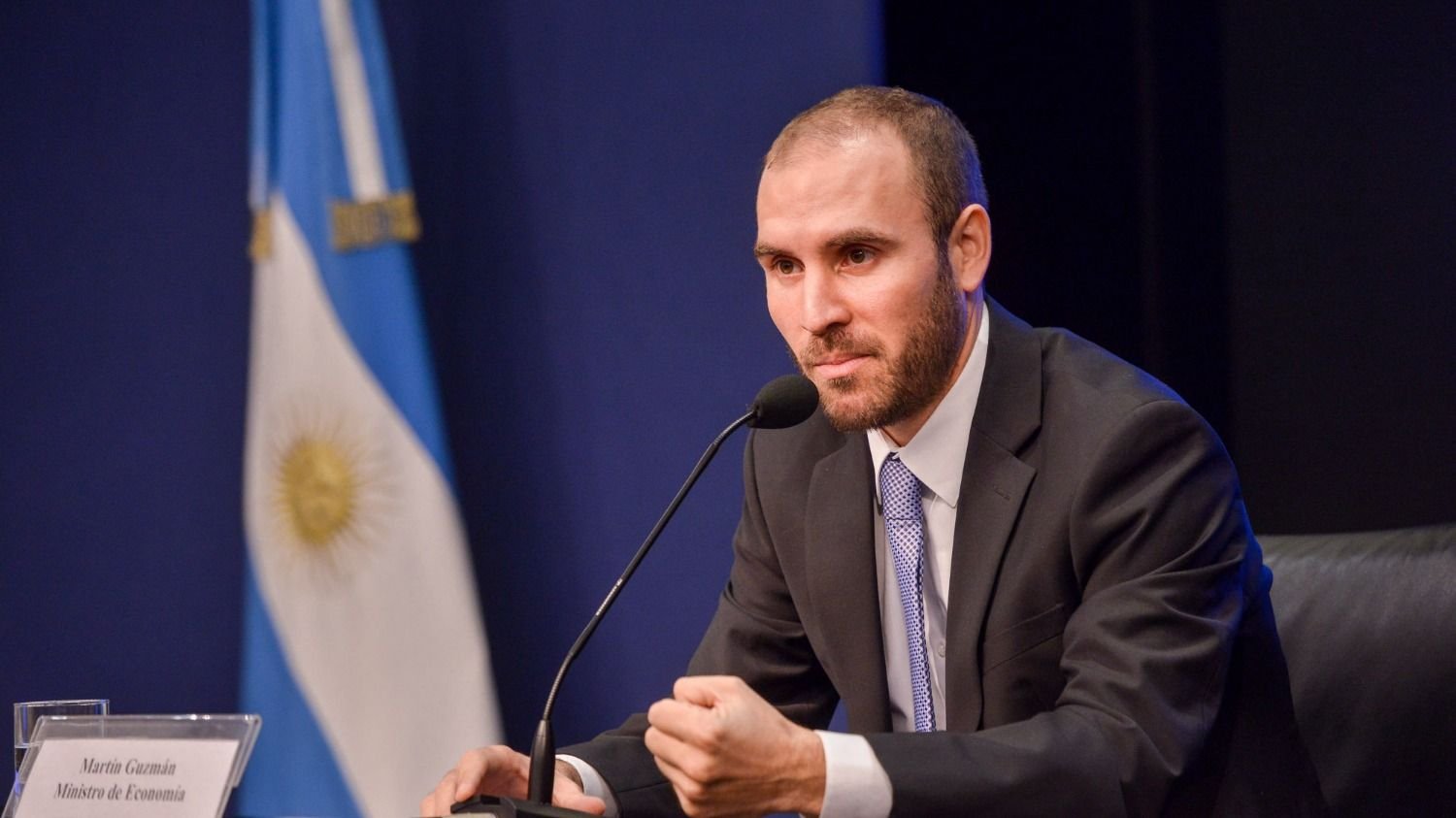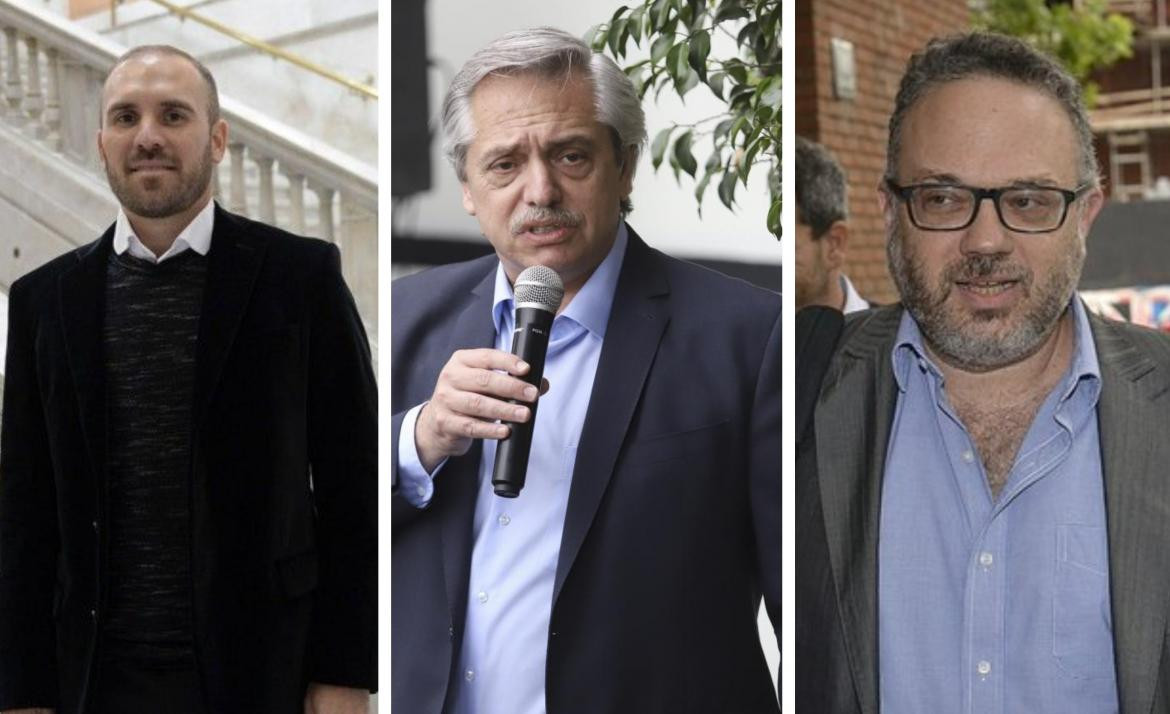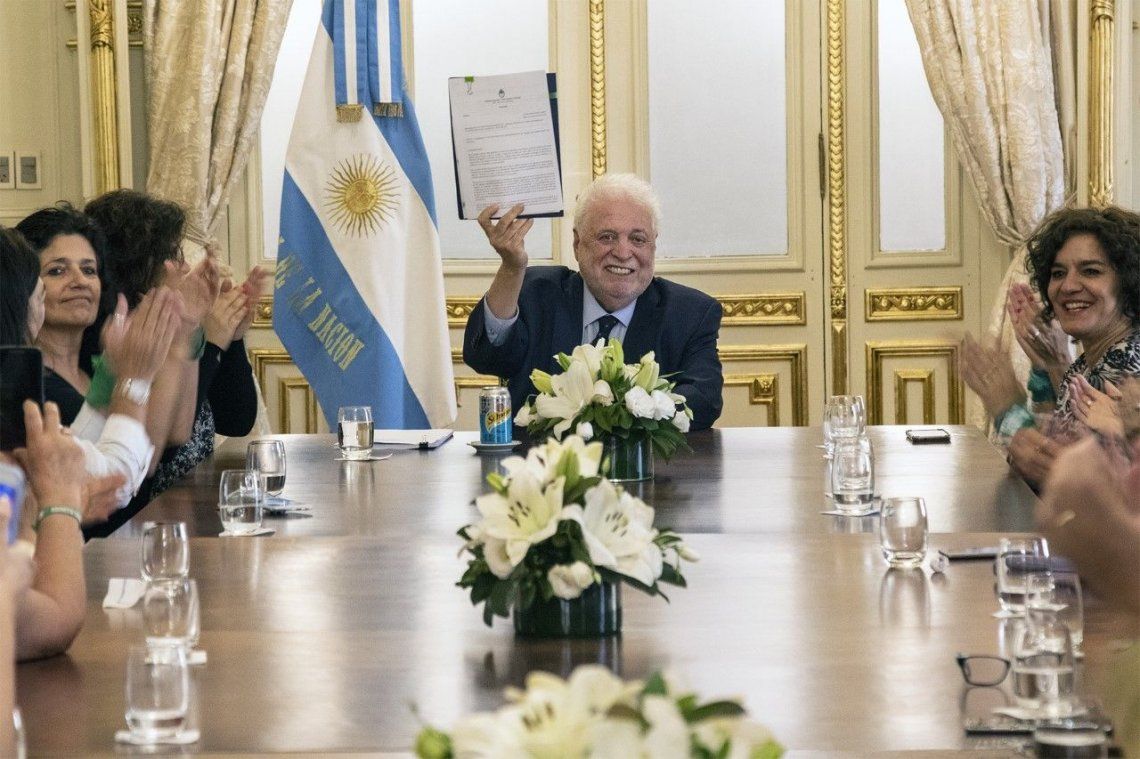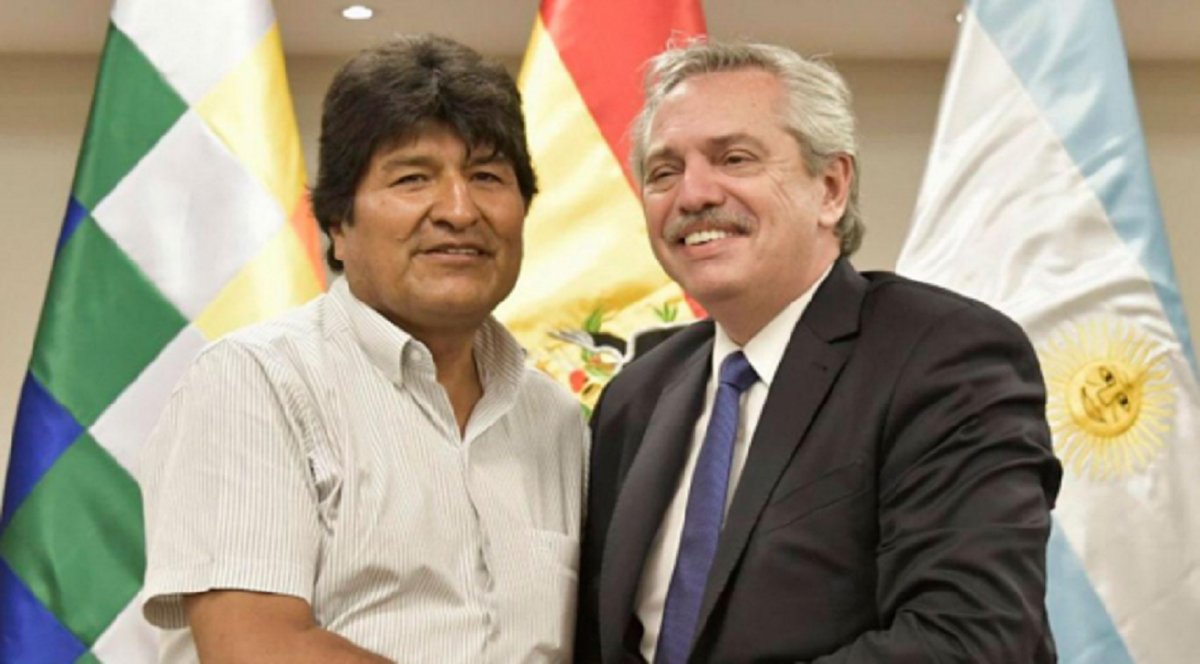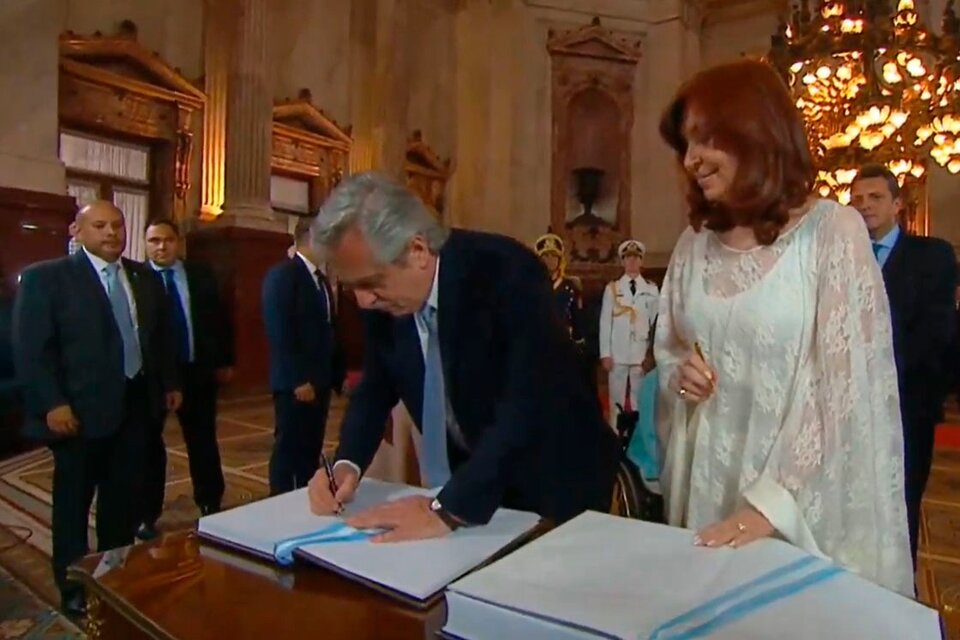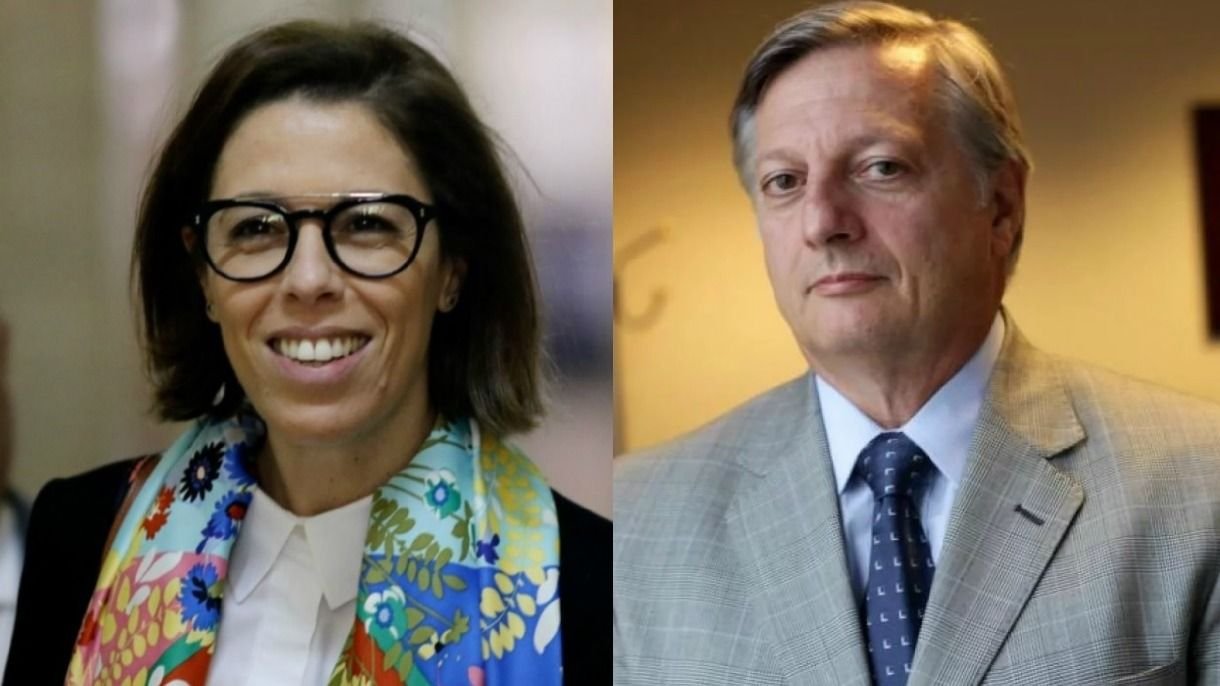peppertree
peppertree's JournalArgentine bond markets rally on currency policy announcements
Argentine bond markets rallied today on announcements by Economy Minister Martín Guzmán of policy changes designed to limit capital flight.
The nation's most commonly subscribed sovereign bond, Bonar 24, rose 7.4% - and peso-denominated issues rose as much as 13.5%.
JP Morgan’s Emerging Markets Bond Index (EMBI+) country risk for Argentina - the interest premium paid over U.S. Treasuries - fell 146 basis points to 1968, the lowest in two months.
The rally took place after Guzmán announced a 30% surcharge would be applied to dollar purchases as well as on the purchase of services charged in dollars.
"What we're doing is protecting the few reserves we have, to prioritize production - which requires imported supplies," Guzmán noted.
Twin crises
Argentine bond prices have risen steadily since Guzmán and President Alberto Fernández took office on December 10, with the popular Bonar 24 issue up 17.5%.
They inherited twin economic and debt crises from the right-wing Mauricio Macri administration - including a $45 billion IMF debt, 52% inflation, and a sharp recession.
Most other currency restrictions - notably a $200 monthly dollar purchase limit - had already been enacted in September and October by Macri in a dramatic policy about-face.
Macri had lifted most currency regulations four years earlier - prompting a doubling in the public foreign debt to over $200 billion as capital flight soared.
Debt obligations over the next four years total over $148 billion, with the country's projected $15 billion trade surplus for 2019 dwarfed by nearly $20 billion in foreign debt interest.
"We need a good-faith conversation on the country's ability to service its debts," Guzmán concluded.
At: https://translate.google.com/translate?hl=en&tab=wT&sl=es&tl=en&u=https%3A%2F%2Fwww.ambito.com%2Ffinanzas%2Fsp-merval%2Ftras-los-anuncios-guzman-volaron-135-los-bonos-y-el-riesgo-pais-perforo-los-2000-puntos-n5071746
Argentine Economy Minister Martín Guzmán in today's press conference, in which he outlined measures to limit capital flight and to increase pensions (which have lost 20% of their real value since 2017).
Guzmán faces twin debt and economic crises inherited from Mauricio Macri's 2015-19 tenure, and bond markets have reacted positively to his efforts on debt sustainability.
"The country was ran into debt brutally over the past four years - but the debt was not used to increase productive capacity that would have sustained high dollar outlays," the Columbia University academic noted.
"That's the reality, and everyone recognizes it."
Leading Argentine small farmers group supports increase in export taxes
The National Agrarian Forum (FAN), whose members employ 54% of all farm labor in Argentina, issued a resolution today in support of agricultural export tax hikes announced Saturday by President Alberto Fernández.
The additional 5.3% withholding on grain and soy exports, and 4% on most other farm and seafood exports, is expected to raise an additional $2 billion in annual federal tax revenue for Argentina - currently reeling from a debt crisis inherited from the right-wing Mauricio Macri administration that left office on December 10.
"The National Agrarian Forum supports redistributive measures such as export withholdings," the FAN resolution stated, "especially in times of a Social and Food Emergency."
Consumer prices quadrupled during Macri's four-year term - causing a 23% fall in real pay and a doubling in hunger to 8.9%.
Over 2,000 small farmers went out of business amid soaring costs and interest rates.
FAN distanced themselves from larger landowners in the Argentine Rural Society (SRA)-led Mesa de Enlace roundtable - which expressed opposition to the tax hike while remaining "open to dialogue."
The new policy, according to President Fernández, "restores rates to those applied by Macri" last year - in the early months of the debt crisis.
Two agricultures
"There isn't one agriculture," the FAN recalled.
"On one hand, there is concentrated agriculture that gains through financial speculation and devaluation, which evicts rural and indigenous families, and is not concerned with the destruction of native forests or pesticide contamination."
"On the other hand, we in cooperative agriculture have been harmed by devaluation."
FAN and the Mesa de Enlace agree on segmented withholding, which would reduce withholding for smaller and less profitable farm exporters.
At: https://translate.google.com/translate?hl=en&tab=wT&sl=auto&tl=en&u=http%3A%2F%2Fwww.biodiversidadla.org%2FNoticias%2FRetenciones-el-campo-que-si-las-apoya
Leaders of the Mesa de Enlace (Liaison Roundtable), representing larger landowners, following a meeting with Argentine Agriculture Minister Luis Basterra.
The National Agrarian Forum, representing smaller farmers - over half the total - distanced itself from the roundtable by backing higher export taxes - but has expressed the need for "segmented withholding" proportional to profitability.
"Let those who have more, pay more."
Argentina raises agricultural export taxes
Argentine President Alberto Fernández approved a series of export tax increases today, continuing a policy adopted last year by his conservative predecessor, Mauricio Macri, in response to a mounting debt crisis.
The measure, as outlined in the decree, was based on "the serious situation that public finances are going through," such that "it is necessary to adopt urgent fiscal measures that allow, at least partially, to meet budget outlays with genuine resources."
The export tax hikes are expected to raise up to $2 billion in 2020 - a fraction of the projected $18 billion budget deficit this year, or 4% of GDP.
Export withholding rates thus rose from 5% to 9% for meats, seafood and flour, among others; 6.7% to 12% for grains (mainly corn and wheat); and from 24.7% to 30% for soy.
Exports such as fruit, artisanal and industrial products - the hardest hit by the country's 20 month-old recession - will see no tax increase, and will instead be taxed at the lowest bracket: 3 pesos per dollar, or 4.7% currently.
The measure follows a similar tax hike decreed by former President Macri on September 3, 2018, which raised withholding rates from 0% to 10.8% for grains and from 23% to 28.8% for soy (1.2% below the new rates) - but which had been gradually reduced to 6.7% and 24.7% currently.
Trade surplus and interest outlays
Reaction from farm lobbies was varied, with the head of the powerful Argentine Rural Society, Daniel Pelegrina, lamenting that "when (Fernández) was a candidate he told us we'd be consulted and this did not happen; (Agriculture Minister Luis) Basterra met with us on Thursday and said nothing."
Representatives from the Argentine Beef Promotion Institute (IPCVA) indicated, however, that they "have no problem" with a withholding rate of up to 15% - provided that no restrictions are applied to its rapidly growing Chinese market.
Argentine beef exports were among the few bright spots amid the worst recession in two decades: beef exports during first 10 months of 2019 rose 52% from a year earlier to $2.4 billion (4.5% of the total) - 64% of which was bought by China.
Amid a 25% collapse in imports, the nation's trade surplus is projected to reach $15 billion this year - a surplus dwarfed by nearly $20 billion in foreign debt interest outlays.
At: https://translate.google.com/translate?hl=en&tab=wT&sl=auto&tl=en&u=https%3A%2F%2Fwww.cronista.com%2Feconomiapolitica%2FRetenciones-un-cambio-que-garantiza-a-Alberto-unos-us-2000-millones-extra-20191214-0007.html
Argentine Economy Minister Martín Guzmán, who oversees international accounts, including trade and foreign debt; President Alberto Fernández; and Production Minister Matías Kulfas, who oversees domestic economic policy.
Today's measure seeks add $2 billion in revenue; but raises agricultural export taxes to just 1.2% over September 2018 levels.
The country's foreign debt crisis demands 15% of its federal budget - and more than its entire, $15 billion trade surplus this year.
Argentine soy giant Vicentin suspends crushing amid debt crisis
Argentine soy crushing giant Vicentín has halted most of its operations as the company battles to restructure approximately $1 billion in debt after defaulting earlier this month.
The production issues affect crushing at Vicentín’s processing plants and threaten to ripple through global markets and hit domestic supply of edible oils.
Vicentín, founded in 1929, is Argentina’s top exporter of processed soy and an iconic brand in the South American grains powerhouse. Argentina is the world’s Nº 1 supplier of soymeal livestock feed and soyoil.
The firm, with revenues of $4.2 billion, shipped 929,000 tons of soy oil and 4.4 million tons of soy flour in 2018.
Macrisis
Vicentín's finances were strained by an August 28 decision by the former Mauricio Macri administration, which left office Tuesday, to suspend payments on short-term treasuries.
The measure, part of the "Macrisis" that began with the April 2018 implosion of a carry-trade debt bubble known locally as the "financial bicycle," has impacted businesses, the social security fund, and mutual funds - all of which earned sizable interest income from the defaulted treasuries.
"There has never before been a default on peso-denominated debt," Claudio Belocopitt, CEO of Argentina's largest private hospital chain, Swiss Medical Group, noted at the time.
"Reprofiling is just a word they invented to keep from admitting they stole it all."
At: https://www.reuters.com/article/us-argentina-grains-vicentin/argentine-soy-giant-vicentin-suspends-crushing-amid-debt-crisis-sources-idUSKBN1YH24R
View of Vicentín's soybean crushing complex in Timbúes, north-eastern Argentina - the largest such complex in the world.
The country's top exporter of processed soy, Vicentín is one of a number of Argentine firms impacted by former President Mauricio Macri's August 28 decision to suspend payments on short-term treasuries - a favorite hedge investment by Argentine business and mutual funds alike.
Vicentín's insolvency is one of a number of economic problems inherited by the Alberto Fernández administration. Fernández has pledged to reduce interest rates (the prime rate is currently around 70%), and extend public credit facilities to struggling employers.
Argentina's new government moves to guarantee access to abortion in rape cases
Women and girls in Argentina seeking to end pregnancies caused by rape will be guaranteed access to abortion under a protocol announced on Thursday aimed at reducing the latitude hospitals have in deciding whether or not to perform the procedure.
Argentine law, which dates from 1921, allows abortion in case of rape or threat to the life or health of the mother.
But abortion rights advocates say the law is not always applied across the largely Roman Catholic country and that local hospitals have too much power to decide which cases fall under the legal criteria.
““We are respectful of conscientious objection but conscientious objection cannot be used as an institutional alibi for not complying with the law,” Health Minister Ginés González García told a news conference.
He was sworn in on Tuesday after moderate Peronist President Alberto Fernández was inaugurated.
A similar, albeit more narrow, protocol was signed on November 21 by González's predecessor, Health Secretary Adolfo Rubinstein - but was repealed within hours by then-President Mauricio Macri.
Rubinstein resigned in protest.
Macri, who has long opposed abortion rights, left office on December 10 after becoming the first president in Argentine history to lose a re-election bid.
Despite Argentina's restrictive abortion laws, an estimated 300,000 abortions are performed annually - up to 50,000 of which result in dangerous complications, and, in 2017, in 30 deaths.
Fernández has announced his intention to send a bill to Congress legalizing abortion on demand.
At: https://www.reuters.com/article/us-argentina-abortion/argentinas-new-government-moves-to-guarantee-access-to-abortion-in-rape-cases-idUSKBN1YG2RH
Argentine Health Minister Ginés González García holds up the legal abortion guideline signed yesterday.
He's preparing a bill to legalize abortion on demand - rather than on the narrow rape/health exceptions current law (dating from 1921) allows for.
But the bill's passage is far from certain.
Evo Morales arrives in Argentina seeking political asylum
Former Bolivian President Evo Morales arrived in Argentina, Bolivia's southern neighbor, Thursday morning.
"I've come to Argentina to continue my struggle," Morales told reporters. Argentine Foreign Minister Felipe Solá confirmed he would be granted political refugee status by President Alberto Fernández, who took office Tuesday.
The former head of state arrived at Pistarini International Airport, near Buenos Aires, from Cuba this morning. Morales joins his two sons, Evaliz and Álvaro, who arrived in Buenos Aires on November 23.
He was accompanied by four other ex-government officials, including his former Vice-President Álvaro García Linera, former Health Minister Gabriela Montaño, former Foreign Minister Diego Pary, and Bolivia's former Ambassador to the OAS José Alberto Gonzales.
Morales, according to Foreign Minister Solá, had "requested asylum at the time" of his November 10 ouster - but former Argentine President Mauricio Macri "did not grant it."
Mexican President Andrés López Obrador granted it instead, and Morales attributed his intervention and that of then President-elect Fernández for "saving my life."
Fernández, who defeated Macri amid an economic crisis, has said he considers Morales' removal from office "a coup d'état."
Morales' self-proclaimed successor, Jeanine Áñez, has ruled by decree and overseen a wave of police violence against protesters and other human rights abuses.
Morales has called for new elections, which Áñez has agreed to - but has repeatedly postponed.
At: https://www.batimes.com.ar/news/argentina/evo-morales-has-landed-in-argentina-confirms-foreign-ministry.phtml
Deposed Bolivian President Evo Morales and Argentine President Alberto Fernández during the latter's presidential campaign this August.
Fernández, who took office Tuesday, has been one of the region's most prominent critics of the violent, November 10 coup in Bolivia.
"It would be an honor for Argentina to have Morales and Álvaro García Linera," he said.
Argentina's Peronists return as Alberto Fernandez takes office
Argentina’s new President, Alberto Fernández, took office today, a sharp gear shift from conservative Mauricio Macri as the Latin American country firefights rampant inflation, credit default fears and rising poverty.
The 60-year-old center-left Peronist politician was sworn in by lawmakers in the Congress building at noon (1500 GMT) before swearing in his newly appointed ministers at the Casa Rosada presidential palace.
Fernández’s arrival marks a return of Argentina’s powerful left-leaning Peronist political flank, including his divisive Vice President Cristina Fernandez de Kirchner, a rockstar populist who clashed with investors and landowners during her twin terms between 2007-2015.
The new administration is expected to usher in growth-focused policies after unpopular austerity under Macri, which could strain already depleted state coffers.
Supporters hope Fernández can tackle inflation running above 50%, poverty at 40% amid the worst recession in two decades, and tricky restructuring talks over around $100 billion in sovereign debt with lenders - as well as a record, $45 billion bailout granted to Macri last year by the International Monetary Fund.
"The Argentina we seek is one that grows with inclusion," Fernández said during his inaugural address. "One that promotes production rather than speculation."
At: https://www.reuters.com/article/us-argentina-politics-inauguration-idUSKBN1YE128
Argentina's new president, Alberto Fernández, signs the congressional visitors' register upon arriving today for his inaugural as Vice President Cristina Fernández de Kirchner looks on.
The pragmatic Fernández, 60, inherits a debt crisis and a near-depression from his neo-con predecessor, Mauricio Macri.
Economic stimulus and debt renegotiation will top next year's agenda, along with the need to navigate an openly hostile Bolsonaro regime in neighboring Brazil (Argentina's closest partner) and an uncertain relationship with U.S. President Donald Trump.
Trump's support for Macri, a longtime friend, included forcing the IMF to lend Argentina a record $45 billion - a debt most analysts consider unpayable without a rescheduling.
Argentine President-elect names Columbia academic Martin Guzman to Economy Ministry
Argentine President-elect Alberto Fernández, who takes office on December 10, presents his future cabinet in a Buenos Aires press conference today.
The key post of Economy Minister, will reportedly be held by Columbia University Associate Professor Martín Guzmán, a close colleague of Nobel Laureate Joseph Stiglitz - whose Columbia office is next door to his.
The Argentine-born Guzmán, 37, a debt specialist at Columbia with a doctorate from Brown University, will bring a sharp academic intellect but little policy-making experience to the task of reviving Latin America’s third largest economy and fending off default.
He will need all his training as Argentina braces for fraught negotiations with creditors to restructure around $100 billion in sovereign debt while steering the recession-hit country back to growth and taming inflation.
Twin crises
Fernández and Guzmán are expected to enact expansionist policies, including higher business and family subsidies, increased public works and social spending, and sharply lower central bank interest rates (currently 63%).
They face twin economic and debt crises, including a $45 billion IMF debt - plus another $160 billion in other public foreign debt, most of which is due within the next four years.
The new administration also inherits an economy reeling from the April 2018 collapse of a carry-trade debt bubble known locally as the "financial bicycle" - a centerpiece of economic policy under outgoing President Mauricio Macri.
The 'bicycle' collapse forced the right-wing Macri to turn to the IMF for an unprecedented $57 billion bailout; but of the $45 billion borrowed, an estimated $36 billion were ultimately used to finance capital flight.
Despite record harvests GDP has fallen 7.4% since the crisis began, with the peso losing 68% of its value and real wages falling 19% as inflation more than doubled to over 50%.
At: https://translate.google.com/translate?hl=en&tab=wT&sl=auto&tl=en&u=https%3A%2F%2Fwww.pagina12.com.ar%2F235018-quien-es-martin-guzman-el-elegido-de-alberto-fernandez-para-
Argentina's Economy Minister-designate Martín Guzmán.
The Columbia University academic and close colleague of Nobel Laureate Joseph Stiglitz inherits a "Macrisis" - twin economic and debt crises left from the financial deregulation and austerity policies that marked the four-year Mauricio Macri administration.
Argentina: Top Macri officials indicted
Federal indictments were issued today in Argentina against former Energy Minister Juan José Aranguren and the current head of the Anti-Corruption Office (OA), Laura Alonso, over charges of self-dealing by Aranguren and obstruction of justice on his behalf by Alonso.
The charges against Aranguren stem from his February 2016 order to import 195 million ft³ of natural gas daily from British Gas, a Chilean-based natural gas importer purchased by Shell Argentina just months before then newly-elected President Mauricio Macri named Aranguren Energy Minister.
The purchase was made after cancelling one from Bolivia - which was 56% cheaper.
Aranguren, 65, was CEO of Shell Argentina from 2003 to 2015, and is still a sizable shareholder in the firm.
He resigned as Energy Minister in 2018 after the Paradise Papers scandal revealed him to be a principal in two Barbados-based offshore companies - including a Shell subsidiary which received large contracts from the Macri administration.
These apparent conflicts of interest were first denounced in 2016 - but the case remained stalled in the courts largely because the Anti-Corruption Office (OA) refused to file charges.
Vulture culture
The OA is headed by Laura Alonso, who has refused to file charges against Macri or his officials in at least 20 cases in which the OA itself recommended them.
Alonso, 46, is the first OA head to belong to the same party (Macri's hard-right PRO) as the administration it is charged with overseeing - and the first to lack a law degree, which the post requires.
She received funding in 2014 by vulture funder Paul Singer, amid Singer's demands for a 1,600% payout on defaulted bonds bought from resellers. Macri's 2016 settlement reportedly netted Singer an 1,180% return.
Alonso and Aranguren become the second and third top Macri officials to be indicted since October 18, when former Social Security Trust Fund (FGS) director Luis María Blaquier was indicted over a 2016 FGS stock purchase in the Clarín Group - in which he was a major shareholder, and on which the FGS lost $22 million.
The Clarín Group, Argentina's largest media conglomerate, are prominent backers of Macri, who on October 27 became the first Argentine president to lose re-election.
Macri, who leaves office on Tuesday, is facing up to 144 charges ranging from corruption, self-dealing, and abuse of power against opponents.
At: https://translate.google.com/translate?hl=en&tab=wT&sl=auto&tl=en&u=https%3A%2F%2Fwww.eldestapeweb.com%2Fnota%2Fcorrupcion-m-procesaron-a-juan-jose-aranguren-y-laura-alonso--201912612170
Anti-Corruption Office (OA) head Laura Alonso and former Energy Minister Juan José Aranguren, indicted today for his self-dealing on Shell gas imports and her role in their cover-up.
Two of the most visible - and controversial - top officials in the outgoing Mauricio Macri administration, they are among over 50 top Macri officials facing charges ranging from corruption to abuse of power.
Argentine courts, which the UN on November 4 accused Macri of pressuring, had long refused to pursue many of these charges - some of which date from 2016.
But they have become more proactive since Macri's October 27 re-election defeat - and since revelations that Macri had been routinely spying on most of the judiciary.
Argentina's Macrisis: Income poverty rises to 40.8%, highest in 15 years
The Catholic University of Argentina's Social Debt Observatory, which publishes a twice-annual survey of living conditions in the country, found that 40.8% of Argentines were living below the poverty line in the third quarter.
This was a sharp increase from the 33.6% recorded a year earlier, and the highest reading since 2005. Extreme poverty - those earning less than 40% of the poverty line - rose from 6.1% to 8.9%, the highest since 2006.
Poverty affected 32.1% of households. Those hardest hit were people in households led by unregistered workers (66.4%) and blue-collar workers (51.8%); some 59.5% of children are now poor.
Income poverty has risen steadily, from 28.2%, since the April 2018 collapse of a carry-trade debt bubble known locally as the "financial bicycle" plunged the country into its deepest recession since the 2001-02 convertibility crisis.
The 'bicycle' collapse forced President Mauricio Macri to turn to the IMF for an unprecedented $57 billion bailout; but of the $45 billion lent, an estimated $36 billion were ultimately used to finance capital flight.
Despite record harvests GDP has since fallen 7.4%, with unemployment rising to 10.6% - the highest since 2006. Those with jobs have seen real wages erode 19% as inflation more than doubled to over 50%.
The crisis has also affected Argentina's sizable middle class: So far this year, real retail sales are down 12.3% and new auto sales are down 43.4%.
Income poverty in those with middle-class occupations jumped from 4.9% last year, to 14.2% currently.
At: https://translate.google.com/translate?hl=en&tab=wT&sl=auto&tl=en&u=https%3A%2F%2Fwww.baenegocios.com%2Feconomia-finanzas%2FUCA-la-pobreza-salto-al-408-y-alcanzo-el-nivel-mas-alto-de-la-decada-20191205-0015.html
Families sift through clothing at a barter market in Villa Carlos Paz, in central Argentina.
These improvised markets, known as trueques, had not been widely seen in around 15 years - but have made a comeback this year after President Mauricio Macri's "financial bicycle" debt bubble collapsed in 2018.
The resulting "Macrisis" led to his defeat in October - making Macri the first Argentine president to lose re-election.
Profile Information
Member since: Thu May 18, 2017, 12:36 PMNumber of posts: 21,713
